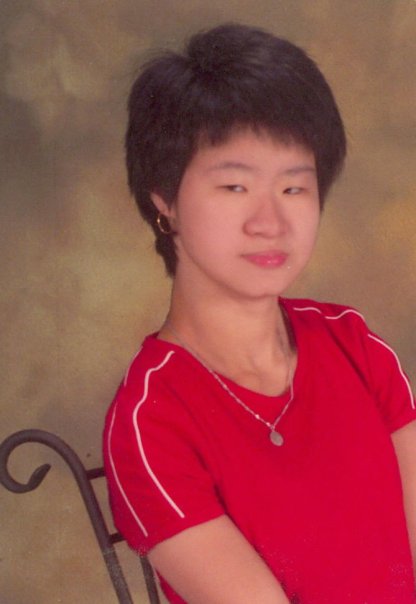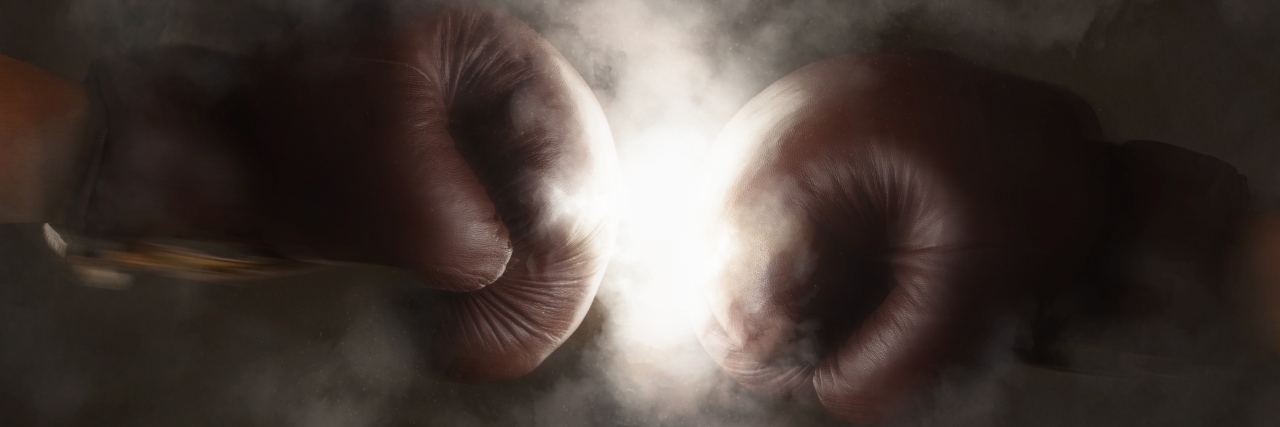Life has a way of bestowing things upon us that can mold and shape the soul. Some leave us empty and cold, while others prove to be the greatest gifts we’ve received or could ever give. They’re the bloodlines to the stories written in our hearts — granting us the title of mother, father, sister, brother, friend — or any other title or honor that’s earned. It’s because of the things we’re given that we’re able to wear as many hats and play as many roles as we want — but only the ones we are truly meant for.
I was never fortunate enough to be bestowed with the role of a mother, but I am a daughter, granddaughter, sister, niece, cousin, and friend. These are all roles that have made me who I am, and I’m proud to take on every single one day in and day out. There’s one title, however, that no family member or friend granted me. It didn’t come gift-wrapped or topped with a fancy bow, but I earned it the second I came into this world.
I’m a fighter.
I was born in Seoul, Korea and bred by the hand of cards I’ve been dealt. It would be easy, almost expected, if I’d simply skip to the end of my story and place all the blame for my struggle, pain, and personal hardship on my cerebral palsy. After all, it’s only a condition that can affect everything from one’s ability to pick up a toothbrush to the capacity to think and speak, depending on the individual who’s diagnosed with it. In theory, that should be reason enough for me to cut corners and dance around certain unflattering aspects of my existence since my CP has left me in a wheelchair since birth. There’s just one tiny problem, however. I never got the memo.
Life has yet to afford me with the luxury of cutting corners, so I’ve yet to be shown the “easy way out”. I’ve taught myself how to rise and fall — maybe not gracefully, but always with a lesson in my back pocket every time I hit rock bottom. I’ve found that cerebral palsy is a bare-knuckle fight that can’t be contested with quick hands and boxing gloves. It’s more like psychological warfare caused by external forces I can’t control — the low roar of a car engine motoring by my house, the rhythm of footsteps as they clunk down the wooden stairs leading into my first-floor bedroom or the defiant sound that the door to my accessible entrance makes when someone comes or goes. However, nothing could have prepared me for my next fight — with Graves’ disease.
On February 25, 2015, I was unexpectedly diagnosed with Graves’ disease, an autoimmune condition which causes extreme swelling of the thyroid gland located in the throat. Symptoms can range from a simple headache to major tremors, as the thyroid is responsible for controlling and regulating nearly everything in the human body. This includes any chemical imbalances and abnormalities in blood levels. But it all just felt like a normal, run-of-the-mill cold and flu in the months and days leading up to my diagnosis.
I woke up with an unusually high fever and a runny nose two days after Christmas 2014. My bedsheets were drenched in sweat, and my entire body felt as if someone had lit it on fire. I tried to position myself at an angle in my bed so that most of my covers would come off when I kicked my legs, but the fabric immediately adhered to my skin and became so translucent that I could see my arms through it. Completely spent from the five or so minutes that had gone by, I fell back onto my pillow and tried to plan out my next move.
My hand inadvertently brushed up against my forehead. My fever had not only escalated at this point, but beads of sweat began to form in places I didn’t even know it was humanly possible to sweat. I wiped my snotty nose with the back of my already soaked right hand and grabbed my bedrail — frantically thrashing now, trying to land on a dry spot on my sheets. The cool, crisp breeze that usually blows through the family room, which is connected to my bedroom, wasn’t even cutting the sudden pulses of heat that were running through my body.
I kept grabbing the rail and falling back down onto my pillow until my hands were numb. I knew I wasn’t getting anywhere, but I didn’t see much of a difference between this and the uphill battle I call life. So I fought. I fought until I broke.

I had no choice but to yell, scream for my parents to come downstairs. They did, and my mom started to say, “Erin, why are you…”
She stopped when saw my beet red face and hands, along with the mound of sweat-soaked covers and sheets that had conformed to my arms, legs and chest. She put her head on my forehead before peeling each layer of the mess off me. The coolness of her forearm felt like heaven on my skin.
This cycle would continue throughout the dead of winter, until two months later, I found myself sitting in the office of Dr. Michelle Griffith, the head of the thyroid department at the Falk Center in Pittsburgh, Pennsylvania.
It was only a little over two hours from my hometown of Altoona, but my hot flashes made it feel like an eternity. I had enough local doctor visits and tests done prior to this that the scared little girl inside me started to overcome me. I didn’t care; I just wanted an answer.
My tremors started to take over. I could hear the foot rests on my chair begin to rattle as I navigated through long, winding hallways and elevators to get to my assigned room after the receptionist at the front desk signed me in. The place didn’t look or smell like a hospital, which I took major comfort in.
Dr. Griffith walked in a couple minutes later, shook my hand and carefully discussed my symptoms and possible treatment options with me and my mom, who made the trip with me, along with my older brother. She went through a list of about a dozen symptoms — all of which I had — and told me my options for treatment: start a daily medication regimen, take a radioactive pill and be in complete isolation for three days, or have the mass on my thyroid surgically removed. All three options were intended to shrink my thyroid down to a semi-normal size and reduce swelling, but I knew there was no way I could be by myself for three days, in isolation, due to my CP.
Dr. Griffith had a hunch that the culprit was Graves’ disease, just by listening to the descriptions of what I was feeling. Mom told her the specifics of my CP, and I opted to begin the daily meds right away. We weren’t sure what to expect, though it brought me some degree of comfort seeing that this particular doctor looked to be around the same age as me, and could likely relate to me more.
She then gently examined my throat with only her fingertips and asked me to swallow a few times. I watched as one of her assistants drew blood from my arm and bandaged me up with the usual cotton ball and tape. I was used to the whole routine by now.
“My hunch was right on the money, Ms. Erin. You’ve definitely got Graves’,” the doctor said when she came back with the results of my bloodwork less than five minutes later.
I was frozen with fear and disbelief. I could barely get the words, “What’s that?” out of my mouth. All I could do was sit there and just take this in as my legs continued to shake from my tremors.
“I’m so sorry they couldn’t come up with a prettier name for it. It was named after the person who first discovered it.”
“No, it’s…it’s OK.” I replied shakily. “I finally know what’s wrong with me.”
I came out of that office still shaken, but with peace of mind. There was a moment where the scared little girl inside me wanted to run away. I had to ask myself, what has that little girl done all her life when her back has been against the wall?
Dance. It was the only thing that came to mind, considering I “danced” all the way to Pittsburgh in the car with all the windows down, while my mom and brother huddled close to the heat.
I don’t know how or when this chapter of my life will end, or where it’s going to take me. I do know, however, that this is all a part of my fight now. I’m still learning how to block its uppercuts and punches. I’ve dodged a few so far, but most of them have come out swinging, hard.
I don’t think I even have the words to compare it to my cerebral palsy, but I will say this: with Graves’, I feel like a puppet on a string because my symptoms are so strong and spontaneous that they completely take over. I’m still on my medication regimen, but everything that comes with this disease has taken more away from me than I’m willing to admit—the feeling of control being my biggest loss.
I may never have the right words to describe this, or the road that lies ahead. All I know for now is that the dancing gods have given me a new pair of shoes, and I’m slowly learning how to “bust a move” again. Even if it is with a set of wheels.
Image by Thinkstock.

